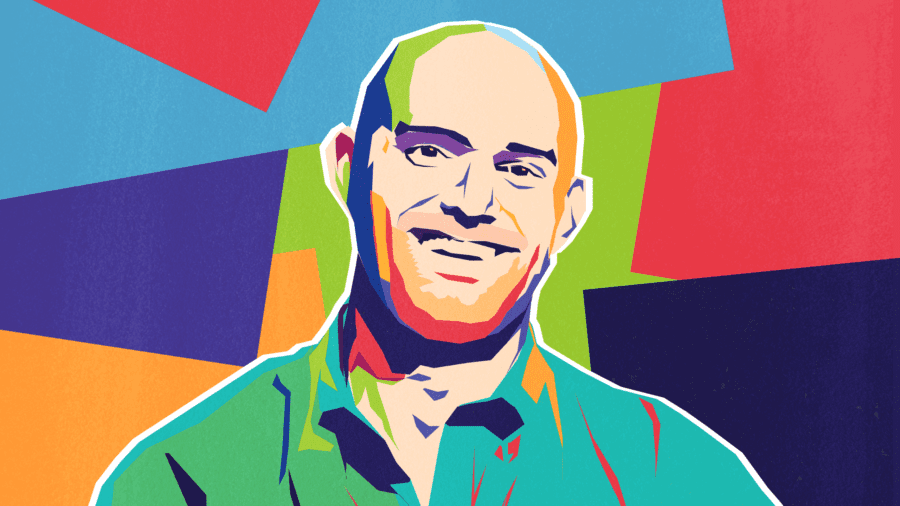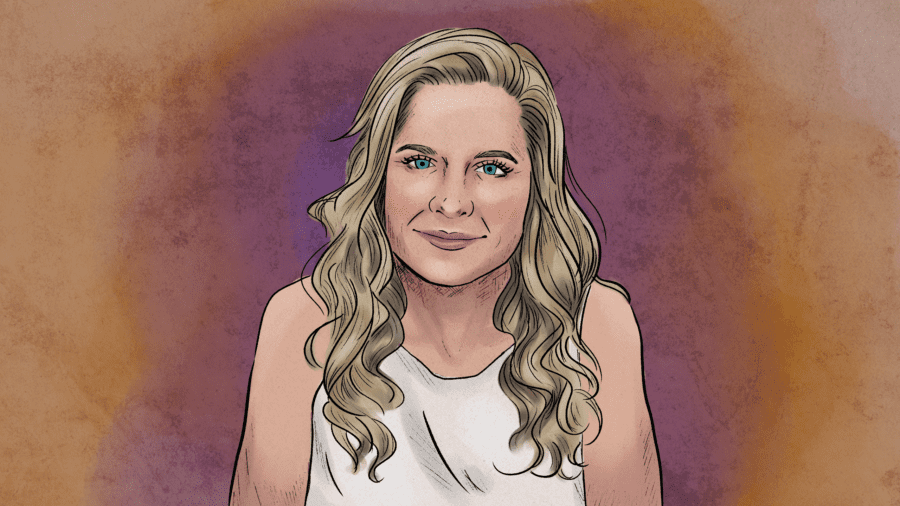
The Mindset of an Expert Public Speaker: Proven Strategies for Beginners
Public speaking can often seem incredibly daunting, especially for beginners. It’s no secret that people have a fear of speaking in public.
In fact, around 75% of people don’t feel comfortable with public speaking. Fortunately, there are many ways in which you can improve your public speaking abilities, and perhaps the most critical part of becoming an expert public speaker is shifting your mindset.
Whether you need to speak in front of a group of five people or 5,000, you can use these strategies to become a confident, powerhouse speaker, and you can also use them as tools to craft better presentations.
This article goes in-depth about how you can develop the mindset of an effective speaker while also ensuring that you can connect with and impact your audience.
Develop the Mentality of Understanding and Connecting with Your Audience
The most important part of delivering a top-notch presentation is knowing and connecting with your audience.
If you don’t connect with your audience, it doesn’t matter how prepared you are or how great your speech is — you still won’t leave an impact.
The first part of connecting with your audience is getting to know them better. What do they care about? What do they want out of your presentation?

The Greatness Mindset
Learn the secrets of some of the greatest minds in the world. Unlock the power of your mind and live your best life today.
Learn MoreCraft Your Speech on the Fly
There are a few ways to better understand your audience before speaking, but you can even learn about your audience during your presentation.
The website 7 Mindsets shared a valuable tool you can use for crafting your speeches around your specific audiences. You simply ask what the audience wants to gain from your presentation.
You ask the group you’re speaking with to close their eyes, imagine the speech is over, and complete the sentence, “I’m glad I heard this person speak because I learned…”. If you’re giving a presentation to a small group of people, you can have them all answer, or if you’re speaking to a larger group, you can call on a few individuals.
This tactic is effective for crafting the kind of speech your audience wants to hear, and you can even do this if you prepared it beforehand. By simply adjusting your presentation accordingly, you can meet your unique audience’s needs.
Meet Your Audience Beforehand
Now, not everyone wants to create or adjust their speech on the fly, and that’s okay! There are other ways you can gain a better understanding of your audience to impact their lives.
One method you can use when public speaking is to meet with your audience beforehand. You don’t need to speak with each audience member, but you can arrive at the event early and connect with some of the audience to gain insights into the group.
After speaking with audience members, two great things will happen: you’ll feel more comfortable delivering your speech, and you’ll have an easier time connecting with your listeners.
Connecting with audience members before your speech positions you in more of a social mindset than a public speaking mindset — it’s like speaking with a group of friends rather than a room full of strangers.
This effect extends to the audience members as well. If you meet with them before your presentation, they’ll feel like they know you, increasing your likelihood of connecting with them and conveying your message effectively.
Research Your Audience
Meeting with your audience beforehand can be impactful, but you may not always be able to adopt this strategy. If you’re speaking to a large group, you may not be able to meet a significant percentage of your audience, and your schedule may not allow you to be social before your speaking engagement.
A great way to deliver a powerful message without meeting your audience members is to research your audience’s primary demographics. You can craft your message in a relatable way that your target audience can understand and connect with.
For example, suppose you want to give a presentation about having an abundance mindset. How you deliver that message will differ depending on your listeners. If your audience is primarily composed of aspiring professionals in their early 20s, will you speak the same way and deliver the same details as you would presenting to a group of accomplished entrepreneurs? Probably not. You craft your speech and speak in a way that will impact your specific audience, so you need to know who you’re speaking to beforehand.
The most important takeaway from these different tools is developing the mindset of connecting with your audience.
When you connect with your audience, you remove the barrier between you and them so that you’re more approachable and are in a better position to impact them.
Be Authentic and Embrace Being Different
Although crafting your message around your specific audience is a powerful tool, you don’t want to be generic or unoriginal. Being yourself is crucial for delivering an exceptional speech because people want more than a compelling message — they want authenticity.
People don’t want to see a perfect speech where you take all the right pauses and say all the right words. They care far more about feeling a connection with you, and you can cultivate that connection by being vulnerable and honest.
When delivering a speech, don’t try to sound like everyone else. Don’t try to mimic the mannerisms and style of accomplished speakers. Instead, embrace what makes you YOU and deliver a speech that reflects your originality.
In times when you practice your speech, ask yourself the following questions to ensure you’re being true to yourself:
Are you restricting your natural mannerisms, such as smiling or chuckling at your own jokes?
People want a speaker who feels real, so if you allow yourself to incorporate certain idiosyncrasies into your speech, people will feel a stronger connection.
Are you acting as you ordinarily would, or are you trying to present a more impressive version of yourself?
Your listeners don’t want some polished, robotic speaker with no personality. Act like yourself, and don’t put on airs in an effort to impress your audience.
Are you speaking the way you would in a normal conversation?
Although there may be certain things you want to avoid in your speech, such as profanity and filler words, you should still try to deliver your presentation in a similar way to how you usually speak in everyday conversation.
Share Your Passions
You can also convey your authenticity and originality by presenting topics you’re especially passionate about.
Have you noticed how people perk up and have loads of energy when talking about something they’re passionate about? When you share your passions with your audience, they’ll better understand you as a person and feel a stronger connection with you.
Presenting a speech about something you’re passionate about will also be far more entertaining and engaging for your audience members.
Embrace the Art of Storytelling
Shift your mindset away from simply delivering your audience facts. Rattling off a series of facts to your listeners isn’t the most effective way of communicating your message because people are far less likely to remember facts than story-driven speeches.
That’s not to say you need to avoid sharing statistics or other data that supports your presentation, but you need to make it more memorable and personal by incorporating storytelling.
For example, if your presentation is about poverty in America, people are far more likely to remember the stories of struggling individuals rather than mere statistics. You can still share those stats, but make sure to tell stories along with your facts to drive home your point and make it memorable.
You can also draw from your own experiences to tell stories. When you share personal stories that relate to your subject matter, people will — once again — feel a stronger connection with you and your message because they’ll better understand you as a person.
In a speech regarding poverty in America, you could share your accounts about seeing others suffering economically, or if you’ve personally struggled, you could share your own experiences.
Remember, people are far more likely to remember the stories in your speech than the facts.
Join In 200 Million+ On The Journey to Greatness
Focusing on Giving to Your Listeners Through Your Special Abilities
Everyone has a unique perspective and one-of-a-kind experiences, and with your original outlook, you have something special to share with people that they can’t get elsewhere.
Rather than viewing your speaking engagement as an obligation or just an opportunity for personal growth, you can shift your mindset to focus on how you can help others through your perspective.
Continue focusing on personal growth, but don’t only view your presentations as a personal opportunity — view it as a way of giving to others as well. You have the potential to supply life-changing information to your listeners, so focus on giving.
At this point, you might be asking, “What can I present that could change a person’s life?” You can uncover the answer to that question through self-exploration. Think about your original experiences and perspective and how they’ve given you unique insights.
Your insights are like a superpower nobody else has because no one else has walked in your shoes.
For example, maybe you have a unique perspective about starting a business that serves a particular niche. Although many people start businesses, your experiences building your unique business may offer invaluable insights that can help your listeners grow.
When creating your speech, focus on delivering information that ONLY YOU can give. Many people have started businesses, but what makes your experiences one-of-a-kind? And how can you present that information in a way that will serve your audience?
Even if your speech is about informing listeners rather than inspiring or spurring them into action, try to help them see the world differently than they did before your speech. They can gain a better understanding of an original subject or perspective they didn’t have before your speech, and they couldn’t have learned the unique information elsewhere.
Learn More About Developing the Mindset of an Expert Public Speaker
Becoming a master public speaker takes time and work, but you already have the tools to get there!
Remember, connecting with your audience is the most crucial part of delivering an effective speech. Focus on crafting a speech that speaks to your specific audience and incorporates your one-of-kind personality and perspective.
You don’t need to worry about delivering a perfect speech because people care far more about what makes you unique than hearing an immaculate presentation. When you focus on presenting a speech ONLY YOU can deliver, you’ll create something special for your audience that they’ll connect with and remember.
If you want to learn more about incorporating effective communication skills into your life, check out these other Greatness.com articles that you can use to improve your negotiation skills, networking, and communication with a romantic partner.
We hope this article will help you develop the mindset you need to create and deliver expert presentations that help others and assist you on your journey to greatness!
Greatness Authors
Greatness Authors is a collection of writers, thinkers, curiosity experts, and students of the world who are committed to bringing you the most up-to-date, impactful, and inspiring information surrounding Greatness topics.

Redefining Poetry: How Instagram Sensation Rupi Kaur Showed That Poetry Is for Everyone

The 7 Best Vitamins to Naturally Promote Better, Uninterrupted Sleep According to Shawn Stevenson

The Science of Forming Healthy Habits & Letting Go of Bad Ones, According to Author James Clear

9 Signs You Have Imposter Syndrome at Work and How to Overcome Performance Insecurity

Olympian Yusra Mardini’s Incredible Story of Resilience, Rescue, and Refugee Rights










